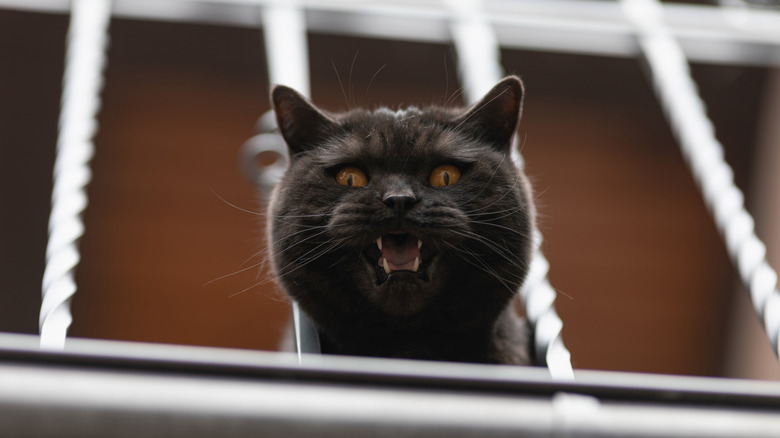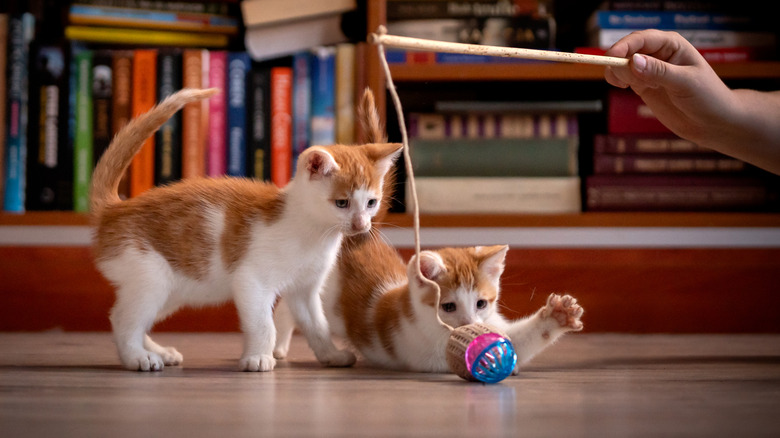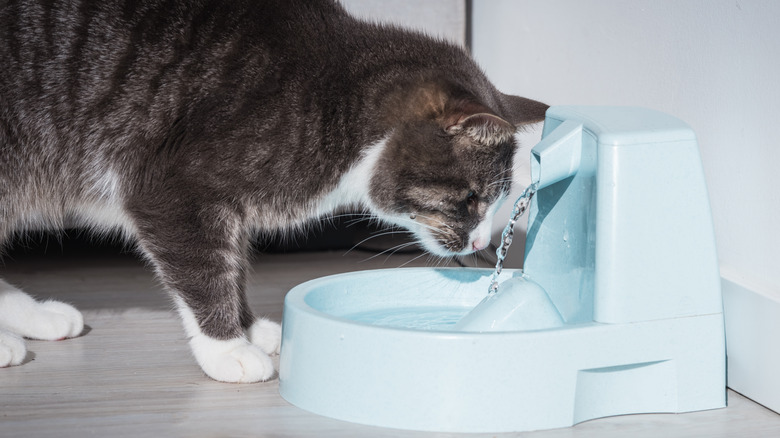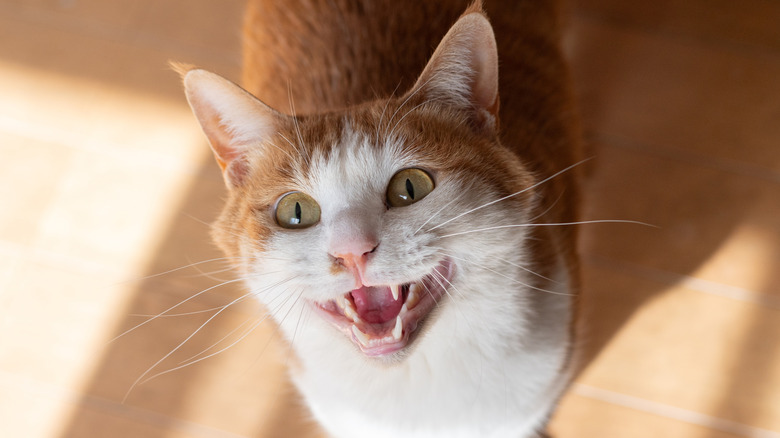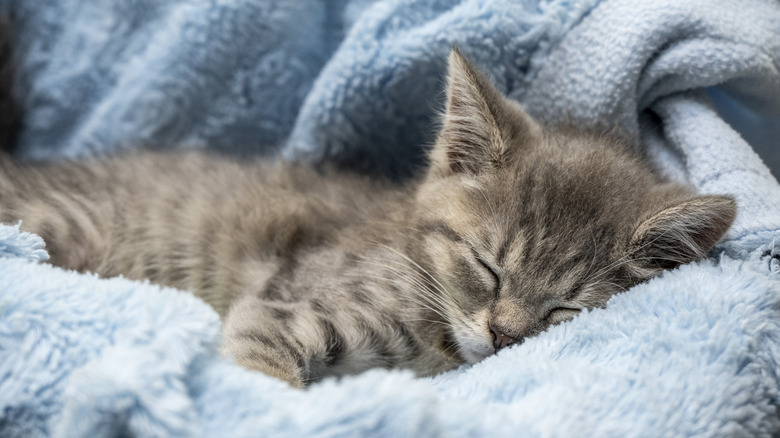Is Your Cat's Loud Meowing Keeping You Up At Night? Here Are 5 Ways To Prevent The Behavior
If you've ever found yourself staring at the ceiling at 2 a.m., wondering what your cat is trying to articulate with their loud meowing, you're not alone. Nighttime meowing, or "night vocalization," is a common issue many cat parents face. Understanding why cats meow is the first step to solving the problem.
Cats may vocalize at night for several reasons: they're naturally more active during dawn and dusk, they might be bored or seeking attention, or they could be hungry or thirsty. Sometimes, the cause is more serious, such as health issues like thyroid or kidney disease, particularly in older cats.
By identifying the root cause, you can tailor a strategy to address the behavior. Whether it's keeping your cat entertained during the day or checking for potential medical concerns, there are effective ways to prevent these nighttime disturbances. We'll explore five practical tips to help you and your furry friend enjoy peaceful nights once again.
Tire the little hunters out
As with puppies and human toddlers, one of the most effective ways to prevent nighttime restlessness is to get your cat to expend their energy during the day, particularly in the evening. Cats are crepuscular creatures, meaning they are naturally most active at dawn and dusk. Without enough stimulation, this energy often manifests as vocalization during your sleeping hours.
Evening play sessions can help mimic your cat's natural hunting instincts while tiring them out. Use interactive toys like feather wands, elusive laser pointers, or kicker toys to engage them in active play. Rotating toys regularly can also keep their interest piqued. For cats that enjoy solo play, provide toys designed for independent use, such as puzzle feeders or motion-activated balls. Even a small catnip toy can suffice.
Playtime doesn't have to take hours: 15 to 20 minutes of vigorous activity before bedtime is often enough. As your cat winds down from their "hunt," they're more likely to settle into a restful sleep, leaving you undisturbed through the night.
Keep it clean and comfy
Sometimes, a cat's meowing at night is simply their way of telling you that something isn't quite right. Hunger, thirst, or an unclean litter box can all trigger vocalizations, especially during the quiet hours of the night. Making sure your cat's basic needs are met before bedtime can go a long way in reducing disruptive after-hours complaints.
Start by leaving out fresh water and a small portion of dry food before you head to bed. Cats are notoriously particular about their hygiene, and a dirty litter box can lead to restless behavior and vocal protestations. Not cleaning the litter box often enough could lead to excessive vocalization, or worse. Additionally, consider your cat's physical environment. Is your cat's sleeping area cozy and quiet? Providing a calming, comfortable spot, such as a soft cat bed, can encourage them to settle in for the night. If they're comfy, they're less likely to climb into your bed and meow, too.
Don't reward nighttime meowing
When your cat meows at night, it's tempting to respond — whether by offering food, cuddles, or even scolding. However, reacting to their meowing can inadvertently reinforce the behavior. Cats quickly learn that meowing in different ways gets them the attention they want, turning nighttime disruptions into a recurring issue.
To break this cycle, it's essential to ignore your cat's meows, no matter how persistent they are. While this approach requires patience, it's an effective way to teach your cat that meowing won't yield rewards. Over time, they'll stop using vocalizations to demand attention. Breaking this habit might take a few days or even weeks, but the effort will pay off when you finally get the uninterrupted sleep you deserve.
Of course, it's crucial to differentiate between attention-seeking meows and those signaling genuine distress. If your cat's vocalizations are accompanied by signs of pain, illness, or anxiety, consult a veterinarian. Otherwise, consistency in ignoring the behavior is key to long-term improvement.
Rule out health issues
If your cat's nighttime meowing persists despite your best efforts, it might be time to consult a veterinarian. Excessive vocalizations can sometimes be indicators of an underlying health problem, especially in older cats. Common conditions associated with increased meowing include hyperthyroidism, kidney disease, and cognitive dysfunction syndrome (CDS). Senior cats are particularly susceptible to these conditions, and changes in vocalization patterns may be one of the first noticeable symptoms. Remember that sudden changes in your cat's behavior should never be dismissed out-of-hand as mere attention-seeking, especially in adult cats with established routines.
A thorough vet check-up can help rule out health-related pain or discomfort. Your veterinarian may recommend diagnostic tests or treatments to address any identified concerns. For instance, medication can help manage hyperthyroidism, while dietary changes might benefit a cat with kidney disease. Blood work and physical examinations are typically the first steps in identifying these conditions, and early detection often leads to better treatment outcomes. Some cats may require ongoing monitoring and treatment adjustments to maintain their quality of life.
Create a peaceful sleep zone
Creating a calming, cat-friendly environment can help your feline settle down for the night. Cats are sensitive creatures, and addressing distractions can make a significant difference in reducing nighttime meowing. Start by designating a quiet, cozy sleeping area for your cat. Consider using a soft, calming bed that provides comfort and security.
If your cat is prone to anxiety, a pheromone diffuser or calming spray can promote relaxation. You may also want to move your cat's sleeping area out of your bedroom, to help keep them from waking you up at night with disturbances. A white noise machine may also mask outside noises, creating a consistent, soothing atmosphere.
Finally, consistency in your cat's routine is equally important. Feed, play, and wind down with them before bedtime. Over time, this predictable schedule will signal to your cat that it's time to rest, not yowl and yap. After all, silence is golden, and quality rest is very much the cat's meow.
